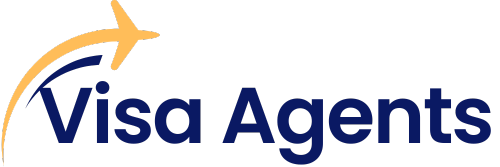Securing a student visa is one of the most vital steps in your study abroad journey. For many countries—including the USA, UK, Canada, Germany, and Australia—the visa interview is a crucial requirement. It’s the final hurdle, and your answers can determine whether you get that visa stamp or face rejection.
In this detailed guide, we will help you understand the most common visa interview questions, how to respond confidently, and the essential preparation tips that can significantly improve your chances of success.
Why Is the Visa Interview So Important?
The visa interview is designed to assess the genuineness of your study plan, your financial stability, and your intent to return to your home country after your studies. Visa officers evaluate:
-
Your clarity of goals
-
Your academic preparedness
-
Your financial backing
-
Your language proficiency
-
Your intentions after graduation
It’s not just about facts—how you communicate those facts matters equally.
Most Common Student Visa Interview Questions (and How to Answer)
1. Why do you want to study in [Country Name]?
Purpose: To understand your motivation and if you genuinely chose the country for education.
How to answer:
“I chose [Country] for its globally recognized education system, practical learning approach, and the specific curriculum of my course, which aligns perfectly with my career goals.”
Tip: Mention specific features like research opportunities, academic reputation, or job prospects.
2. Why did you choose this university or college?
Purpose: To verify that you’ve done your research and are serious about your education.
How to answer:
“After comparing several institutions, I found this university offers the best program for [Your Course], with excellent faculty, lab access, and a strong alumni network.”
Tip: Be specific—mention professors, labs, rankings, or industry ties.
3. What course are you enrolling in and why?
Purpose: To assess your clarity and academic direction.
How to answer:
“I’m enrolling in [Course Name] because it will equip me with the technical skills required for a career in [Industry/Field]. It builds on my background in [Previous Studies].”
Tip: Connect your course to your long-term career goal.
4. Who is sponsoring your education?
Purpose: To evaluate your financial resources.
How to answer:
“My parents are my primary sponsors. I’ve submitted their income proof, bank statements, and ITRs. We’ve also taken an education loan of ₹X from [Bank Name].”
Tip: Be precise with figures. Confidence in financial preparation is key.
5. What does your sponsor do? What is their annual income?
Purpose: To cross-check the financial documents.
How to answer:
“My father is a [Profession] and earns ₹X annually. My mother also contributes with ₹Y. Combined, they have sufficient income and savings to fund my education and living expenses.”
Tip: Match your verbal answers with the documentation you’ve submitted.
6. Do you have any relatives in the country?
Purpose: To detect immigration intent or familial influence.
How to answer:
“No, I do not have close relatives there.”
(If yes, be honest and clearly state their relationship, location, and status.)
Tip: Lying can lead to immediate disqualification.
7. What are your plans after completing the course?
Purpose: To check whether you’re likely to overstay or immigrate permanently.
How to answer:
“After completing my degree, I plan to return to India and apply for roles in [Industry/Company], where my international education will give me an advantage.”
Tip: Emphasize your intent to return and apply your knowledge at home.
8. Why don’t you study this course in your home country?
Purpose: To justify studying abroad over local education.
How to answer:
“The course abroad offers more practical exposure, global perspectives, and access to advanced research not available in my home country.”
Tip: Make it about the academic and career advantages, not just personal preference.
Documents You Must Carry to the Visa Interview
Have these documents organized and ready to present:
-
Valid passport
-
Offer letter or admission confirmation
-
Visa application form
-
Financial documents (bank statements, ITR, loan letters)
-
Academic transcripts
-
Proof of English proficiency (IELTS, TOEFL, etc.)
-
Passport-size photographs
-
Statement of Purpose (SOP)
-
Proof of accommodation, if required
Essential Tips to Prepare for the Visa Interview
1. Practice Mock Interviews
Simulate real interview conditions. Get help from professionals or mentors who can help you refine your answers.
Tip: Practice speaking clearly, confidently, and fluently.
2. Stay Calm and Composed
The interview is usually 5–10 minutes long. Nervousness can affect how your answers are perceived.
Tip: Maintain eye contact, smile politely, and listen carefully before answering.
3. Know Your Application Inside-Out
Be familiar with:
-
Your university/course details
-
Financials you’ve declared
-
Visa forms and documents
Tip: Inconsistencies in your answers can raise red flags.
4. Dress Professionally
A clean, formal outfit shows respect and seriousness.
Tip: Avoid flashy accessories or casual wear.
5. Be Honest
Even if you’ve had a gap year or a visa rejection in the past, honesty is your best defense.
Tip: Visa officers appreciate transparency backed by documentation.
Countries That Commonly Require Visa Interviews
| Country | Interview Required? |
|---|---|
| USA (F1 Visa) | Yes (Mandatory) |
| UK (Tier 4/Student Route) | Sometimes (CAS interview) |
| Canada | Rare (Mostly documentation) |
| Australia | Usually no |
| Germany | Yes (At the consulate) |
We Help You Prepare to Succeed
At Visa Agents in Hyderabad, we’ve been guiding students since 2014 through every step of the visa application process, including:
-
Mock visa interviews
-
Documentation preparation
-
Statement of Purpose assistance
-
Tatkal and new passport support
-
24×7 expert support for students
We ensure that you face the visa interview with confidence, clarity, and complete preparation.

Leave a Reply